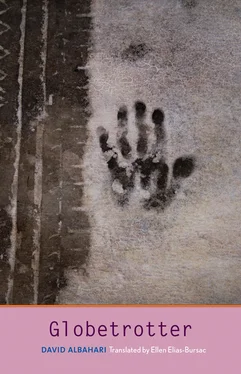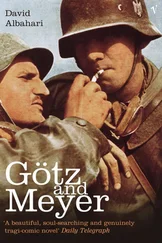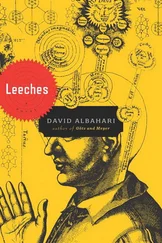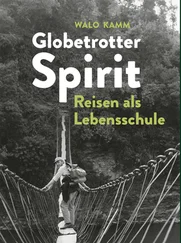Ivan Matulić’s grandson nibbled at his scone and sipped his tea. History had never, he said, meant much to him, for, after all, he had grown up in a time with no history, in a country without a history, on a continent where study was more and more often seen as assembling fragments; there was no interest in the past, only in the present and, possibly, the future, since the past, history, could exist only as continuity, as a totality in which everything, whether a person wanted this or not, was interconnected. For that matter, said Ivan Matulić’s grandson, it was not historical quandaries that had prompted him to give up on the idea of going to the Croatian front but that one night in the middle of Calgary he saw a group of young men of Croatian descent beating up two young Serbian men, and while the shouts and groans climbed skyward and blood gushed down shirts and trousers, he hid in the shadow of a garbage container and vomited, holding his own forehead with his left hand the way his mother had held him long ago when he was small. When the sirens of police cars wailed, he fled with the others. Then he understood, he said, that he was not meant for war but for peace, and this momentarily renewed his faith in his shaken sense of belonging to Canada, though soon he lost it again. The passion with which he embarked on exploring his Croatian heritage surprised everyone — himself and his parents included. His father made no secret of his joy when he started taking an interest in the news, asking for explanations, taking an eager part in collecting financial and material support for Croatian refugees, and especially when he asked his father to speak with him every day for at least an hour in Croatian.
He felt elated — there was no reason to hide it — at the thought that the thousand-year-old Croatian dream was finally coming true, just as he felt hatred, he said, for all those who stood in the way of that dream. Now he was ashamed of this, but then, he said, then it was a blindness that let him see nothing else. His life became an obsession with the idea that after spending years in the absence of history, he should be where history was happening, even if it wasn’t on the front lines, at the very front, but somewhere in the rear, for he knew, he said, that history was written in many places at once, and that each of these was every bit as important, regardless of whether all the events would make it into the history books and regardless of what they would leave out. And so it was, in the fall of 1994, that he found himself in Zagreb. Only two months later, however, frustrated by his desk job and the constant refusal of his superiors to send him into the field, he quit. By then he had contacted relatives in Osijek and Split, and all he wanted, he said, was to be closer to the country and the people who, he was convinced, were making him a happier and better man than he had ever been before. He was not blind, he said, and he wouldn’t want us to think he had never noticed certain negative things going on in politics and culture, but he was inclined to embrace the position espoused by one of the Croatian officials when he was still working and taking part in meetings with representatives of the government. When a democracy is young, said the official, the pills are bitter. This was, in fact, said in response to accusations from the opposition that the government had introduced near-blanket censorship.
It’s not that we control the media, said the official, it’s that we will not allow the media to act against the interests of the Croatian state and the Croatian people. And besides, said Ivan Matulić’s grandson, all of that didn’t interest him much. What did interest him was a bond beyond politics and ideology, a sense of loyalty to the native soil and a sense of the transmission of purity from heart to heart. Like in Zen Buddhism, said Daniel Atijas. Maybe, said Ivan Matulić’s grandson, though he knew nothing about Buddhism, and after everything that had happened, he seemed to know nothing about the heart and even less about purity. When on a trajectory of ignorance, a person cannot stop and tends to sink ever deeper until the ignorance reaches the tip of his nose, his eyelids, the crown of the head. And he, he said, discovered that he was mired in muck; he might have been able to speak about it all as an ascendance, a conquest, which acquisition of knowledge really is, but attaining such heights would have been linked to some kind of elation, and for him, he said, there was no such feeling. He reached the heights, one could say, only to sink to the depths. It all began just when he thought he would forge the most powerful bond if he were to learn something about his forebears, and it made sense, did it not? to find out something about his grandfather, the man who predetermined his, this grandson’s, fate, having decided to venture off to another continent; one might say instead, he said, that his grandfather had inscribed on the grandson’s palm his travel line and his line of return.
He showed us his palm and looked at us as if we knew what the lines meant. He hadn’t been sure where he should begin, for he had no idea where his family came from, but one evening while out strolling around Zagreb he remembered his grandfather’s books and realized that the library was the place to start; there he would finally discover the thread which would guide him through the labyrinth and lead him out. He visited all the Zagreb libraries, and in one of them, perhaps the university library, he wasn’t sure, he found two books by Ivan Matulić in the catalogue. Both were travelogues: the first about a summer spent in Iceland, the second about a winter spent on the Norwegian fjords. On the back of the Iceland book he came across the information that the author had traveled several years before over the American continents, that he had traversed them from north to south, or rather, the blurb said, from the Yukon to Tierra del Fuego — travels about which one could read in his books Among the Mountains and Indians and The Pampas Is Burning. It would be better, he said, not to ask how he finally unearthed the books — the search itself merited a novel — but find them he did, and he learned from the biographical notes that his grandfather was born in 1904 in Osijek, where he mastered the trade of glazier, and from there, having found life’s meaning in constant movement, as he said in the foreword to the first book, he set out on his peregrinations. He never said what spurred him to travel, but with the Balkan wars, World War I, the collapse of Austria-Hungary, and the emergence of Yugoslavia in mind, one could see this as a desire for peace and quiet, a flight from the disorder of history into the order of the scheduled arrivals and departures of trains and boats — mimicry of a nostalgic dream of things that never change — or restlessness of the spirit masked by the activity of the flesh.
All this was, of course, mere guesswork, said Ivan Matulić’s grandson, since his grandfather had died years ago, though he, the grandson, was convinced of the veracity of what he sensed, considering how many times the same pattern had repeated: departure for an exotic, poorly known destination, a stay of several months, acquaintance with local circumstances and beliefs, then a return to Osijek and Croatia, as if these sometimes protracted absences were designed to so whet the returnee’s appetite for return that the condition in which he found his country, his home, no longer mattered. That should have told him something, said Ivan Matulić’s grandson, but at the time he wasn’t yet ready to hear it. Like someone who has discovered the joy of return, even though he had never left, in the literal sense, the place to which he was returning, he believed at first that this was at the heart of what his grandfather had been writing about. Then began, he said, the period of sobering — an apt word, since all love, all elation, is a form of inebriation, and when one is inebriated, as we had all experienced the night before, one’s defense mechanisms react more feebly, until finally the person becomes the victim of the drink, or rather the delusion. It is one’s own delusion, of course, but delusion is delusion, regardless of its source. In short, his initial indifference toward Croatian political events slowly eroded: ignoring the heightened nationalist rhetoric became harder and harder, as did drawing untenable historical parallels, refusing to take responsibility — all the things which, when he sat down and thought about them, should have bothered him right away.
Читать дальше







![David Jagusson - Fesselspiele mit Meister David [Hardcore BDSM]](/books/486693/david-jagusson-fesselspiele-mit-meister-david-har-thumb.webp)




